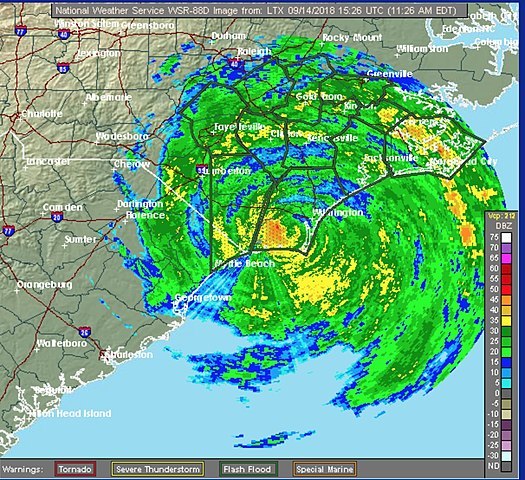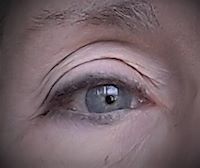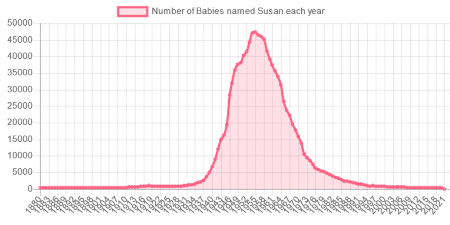Sue Burke's Blog, page 23
September 15, 2021
In the zone: What planet am I on?
 Artist’s concept of how rocky, potentially habitable worlds might appear elsewhere in our galaxy. Credit: NASA/JPL-Caltech/R. Hurt. https://exoplanets.nasa.gov/what-is-an-exoplanet/planet-types/terrestrial/
Artist’s concept of how rocky, potentially habitable worlds might appear elsewhere in our galaxy. Credit: NASA/JPL-Caltech/R. Hurt. https://exoplanets.nasa.gov/what-is-an-exoplanet/planet-types/terrestrial/You may have heard about “writing in the zone.” It’s a creative state where the writer or artist becomes one with the work, in the flow, totally focused. Athletes can experience this, too.
Having been a writer for a while, I can say that this rarely happens. Most of us work distracted, even if we’re trying not to multitask. The computer advises you about a program update, the dog wants your attention, you’re out of coffee, and what’s that funny smell?
Still, it can happen. I remember one time vividly. Actually, what I remember is when it ended. I’d been working on the novel Interference, which takes place on a distant planet called Pax. I felt like I was there, living in the odd and wonderful sights, the cacophony of sounds, and the scents that carried meaning.
Then I looked up. Where was I? Not on Pax. So what planet was this? A blue sky, an oxygen atmosphere, and lots of clear signs of homo sapiens dominance. Yeah, this was Earth. In fact, pretty soon I recognized the city, the building, and the year, and remembered what I was doing there.
I still had one wisp of a question. Why was I on Earth? Why not somewhere else or some other time? The answer was obvious — but not entirely satisfying. Do I really have to be here?
September 8, 2021
She thought it was only a dime…

Here’s a bit of my family lore. When my great-grandmother was a young girl, her family fell on hard times, and she had to get a job. They were living in Milwaukee, and Pabst Brewery had recently won a blue ribbon at the 1893 World Columbian Exposition, the Chicago World’s Fair. The brewery was tying blue silk ribbons on every bottle.
That was her new job. (In those days, children could work in factories that made beer.) After her first week, tying countless ribbons, she got her pay envelope. She could tell by feel that it contained only one small coin. A dime! She’d worked so hard and wanted to be so proud of the help she could give her family, but she’d earned only ten cents.
She cried all the way home on the trolley and gave the envelope to her mother, who opened it. The coin was a ten-dollar gold piece.
September 1, 2021
A glimpse of unexpected heartbreak

The disaster of Hurricane Ida in Louisiana and other southern states reminds me of an unexpected heartbreak I witnessed in 2018.
I was traveling, and on September 10, I was in Michigan eating breakfast at a Best Western motel. I was up very early, and everyone else in the breakfast room was obviously a tradesman: construction workers and truck drivers. These were strong, tough men used to going from job to job and working with their hands.
Television screens on the walls played the CNN morning news, and at one point the news ran a segment on Hurricane Florence. The mammoth storm was about to hit the Carolinas coast and cause catastrophic damage.
The room became silent and every man watched somberly. On their next job, these men, or their friends and coworkers, might be called on to haul supplies and to repair and rebuild the storm damage. They looked grim, not joyful, at the prospect of plentiful work.
Their jobs would bring them face to face with loss and grief, and the future could be hard on their hearts as well as their hands. They’d seen it before, and they were going to see again.
August 25, 2021
My critique group has published an anthology
 Over the Edge Again by Samuel Durr
Over the Edge Again by Samuel DurrWe did it again. My writers critique group here in Edgewater neighborhood of Chicago has released an anthology. It shows off the high skill level of the members I’m lucky enough to critique with — and the range of our imaginations.
“As Fast as You Can,” by Julie Danvers, takes a hard look at corruption in the Fairy Kingdom. Who murdered Humpty Dumpty?
“Sport,” by Z Jeffries, examines an ugly divorce through the tender eyes of a boy fixated on comic books. Could Batman fail?
“R/truthseekers,” by Briana Shucart, narrates the pathetic implosion of a Reddit online conspiracy group.
“Milk Cow Standing in Field #48,” by Nate Currier, studies art and its meaning in an authoritarian society, using an absurdist angle. Nominated for a Pushcart prize.
“Maleficium,” by Edward Pionke, takes the point of view of an oppressor without taking his side.
“Let Me Stop You There,” by Edward Pionke, could have been titled “Am I the Asshole?” If you have to ask, the answer is yes.
“Catch and Release Protocols,” by Coleman Gailloreto, accomplishes that rare feat in science fiction: humor.
“In the Weeds,” by Sue Burke. I destroy humanity, but with a dash of marvel.
“Wild Heart,” by Samuel Durr, who also edited the anthology (thanks!), uses his experience as a hunter to explore the relationship between two people who didn’t seek each others’ company.
These nine stories have no theme besides short works that we’re proud of. By the way, new members in Chicago’s Edgewater neighborhood are always welcome. You can find us on Meetup: https://www.meetup.com/edgywriters/
View all my reviews
August 18, 2021
Goodreads review of “The Difficult Loves of Maria Makiling”
 The Difficult Loves of Maria Makiling by Wayne Santos
The Difficult Loves of Maria Makiling by Wayne SantosMy rating: 5 of 5 stars
I like to read books I could never have written. In this case, I don’t know Filipino or Canadian culture from the inside out. I also don’t write a lot of humor, especially not the zany, snappy wit that makes this novella a delight.
A young woman falls in love, and a pattern seems to be emerging that she can’t entirely recall until she has to save her lover from being murdered by a demon. Then Maria realizes she is the goddess of Mount Makiling in the Philippines. And we get dialogue like this:
“Got an errand to run,” Maria said. “I gotta see a horse about a man.”
It’s fast and fun, it has magic swords, and (are you listening, Hollywood?) it would make a great summer movie.
View all my reviews
July 29, 2021
I lied to Mom and Mom-in-Law

True story. Almost 25 years ago, when my now-husband and I were planning our wedding, we thought it would be good if our parents met ahead of time. We invited them to come to our home for dinner.
I knew my parents and my future in-laws well. The men would do whatever their wives told them to do — but the women had very different ideas about punctuality. So I told my mother to come at 6:30 p.m., and I told my future mother-in-law to come at 4:30 p.m.
Everyone arrived, as expected, at 5:30 on the dot.
July 23, 2021
Are you creative?

Creativity tends to be associated with imaginative artistic creation like writing a novel or song, or painting a picture, but I think that’s much too narrow.
Raising children requires creativity: a parent may be called upon to solve the problems and fulfil the needs of a three-year-old with whatever is on hand (three-year-olds have little patience), using a lot of imagination and improvisation. A business owner faces unpredictable frustrations and opportunities. Cooks, teachers, and engineers, among other workers, have to innovate in tiny and huge ways all the time to create new products and outcomes and re-create old products and outcomes out of changing resources. These roles and many others demand creativity.
We can create beauty, justice, order, value, love, and solutions. Creating anything takes effort and brings joy. The process of creation also changes who you are as a person, maybe a little, maybe a lot. It reveals life.
How will you create today?
July 15, 2021
My right eye

Overall, I see pretty well. I use glasses, but even without them I could manage to read or walk down the street if I had to.
However, the vision in my right eye is a little poorer than the left eye due to minor age-related problems with the vitreous humor (the jelly-like substance inside the eyeballs) and a cataract. I can see well, but the difference is noticeable.
Despite that, I see better and more clearly with both eyes than with just the left eye alone. The right eye still has something worthwhile to give — proof again that contributions of smaller size or lesser quality can be valuable. It all adds up.
July 8, 2021
How I got the name Susan
 From
From Obviously, I got the name “Susan” from my parents. But why did they pick it?
Over the years, I pieced together the story. My practical, rational parents always planned ahead — with one superstitious exception. They had four children in all, and they stalwartly believed it was bad luck to think too much about a baby before it was born. They didn’t want to know the sex or anything else ahead of time.
In fact, it was bad luck just to think about possible names.
But laws require babies to be given names promptly. So after every birth, my parents needed to make a fast decision. In my case, after a long labor, they were both frazzled, and they chose the first thing that came to mind. As it happened, “Susan” reached an apogee in popularity that year, bestowed on . That name came to mind first.
It’s an okay name, from the Hebrew word meaning “lily,” but every time I’m among women my age, at least two of us will be named Susan. I’d prefer something less common. It’s possible to from my name — much like the babies born today being named Emma, Olivia, Liam, and Noah. Names come and go in fashion.
Writers can hint at a character’s age by picking a popular name from their birth year. Betty, Jennifer, Christopher, and Joshua all had their day. For the United States, the Social Security Agency provides for the names registered each year.
Statistics also prove that it was for .
July 1, 2021
Goodreads review: “Meet Me in Another Life” by Catriona Silvey
 Meet Me In Another Life by Catriona Silvey
Meet Me In Another Life by Catriona SilveyMy rating: 5 of 5 stars
Science fiction can reach out to the stars and at the same time hold tight to the human heart. The many layers of mystery in this beautiful love story lead to a breathtaking ending.
First, I should say that the British publisher sent me a copy of this novel and asked me to provide a blurb if I liked it. I did like it, and my blurb is the first paragraph of this review. The British edition goes on sale July 8. If you’re in the US, the book has been on sale since April.
Second, I cried at the ending.
Third, I won’t tell you why. Because spoilers, big spoilers.
Fourth, if you like science fiction, as you read this novel, you may wonder at some point if it is science fiction. Thora and Santi keep meeting in life after life, which doesn’t seem to make much sense. Trust me. It really is science fiction, and it all makes sense in the end.
Fifth, if you like literary fiction, here’s your chance to see that science fiction can also be character-driven and utterly moving. Just like the past and the present, the future will be human and humane.
View all my reviews



